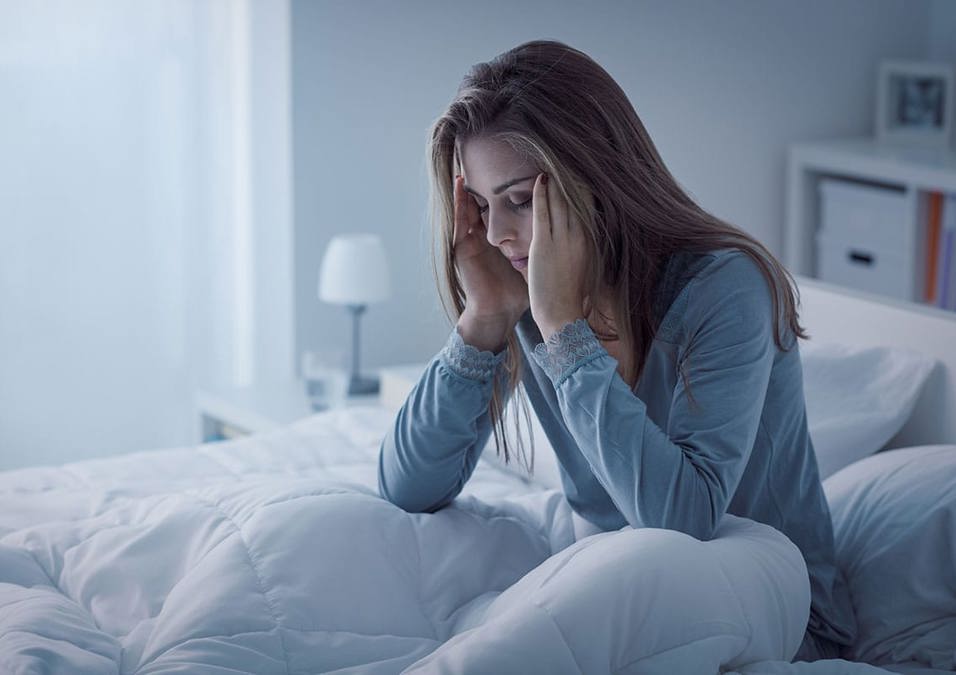The opinions shared in the GymNation blog articles are solely those of the respective authors and may not represent the perspectives of GymNation or any member of the GymNation team
Regular Exercise Found to Alleviate Insomnia, Study Finds

SIGN UP FOR YOUR FREE DAY PASS TODAY!
Regular physical activity offers a plethora of benefits encompassing physical, mental, and emotional health. Experts recommend engaging in daily exercise to enhance overall well-being.
Neglecting to exercise can lead to various issues, such as joint pains and muscle aches.
Moreover, for an additional incentive to adopt an active lifestyle, recent research indicates that daily exercise can significantly improve sleep quality and address insomnia.
The National Institutes of Health (NIH) defines insomnia as a prevalent sleep disorder characterized by difficulties in falling asleep, staying asleep, or achieving restorative sleep, even under conducive conditions.
This disorder can disrupt daily life and lead to daytime sleepiness.
A study highlighted in a CNN report by Dr. Erla Björnsdóttir, a renowned sleep expert and associate teacher and researcher at Reykjavik University, reveals that individuals who maintain a physically active lifestyle exhibit a lower risk of experiencing insomnia symptoms and extreme sleep durations, whether too long or too short.
The Sleep Study
Published recently in the journal BMJ Open, this study analyzed data from over 4,300 individuals aged between 39 and 67 years, spanning a decade. It included participants from nine European countries.
The research evaluated their physical activity in terms of frequency, intensity, and duration.
It also examined their insomnia symptoms, nightly sleep duration, and daytime sleepiness levels.
The Result Of The Study
It was found that participants who were 'persistently active' were 55 per cent more likely to be 'normal' sleepers with 6 to 9 hours of sleep a night; those who became active over a period of time were 21 per cent more likely to sleep normally, the study said.
Bj rnsd ttir was quoted as telling CNN that the results are 'in line with previous studies that have shown a beneficial effect of physical activity on symptoms of insomnia'.
"...but, the current study additionally shows the importance of consistency in exercise over time.
It, therefore, matters to be physically active throughout your life in order to reduce the risk of insomnia and short sleep duration."
"Exercise has been shown to improve sleep quality and duration by promoting relaxation, reducing stress, and enhancing mood.
Physical activity helps regulate the body's internal clock and promotes deeper, more restorative sleep," Bj rnsd ttir was quoted as saying.
How To Diagnose Insomnia?
According to the National Institutes of Health (NIH), those suffering from insomnia may experience a variety of symptoms, including:
- Difficulty falling asleep, a situation more frequently observed in younger adults, where you might find yourself lying awake for an extended period before finally drifting off.
- The ability to sleep only for brief intervals, often waking up several times during the night or finding yourself awake for the majority of it—a scenario that tends to affect older adults more significantly.
- Awakening too early in the morning without the ability to return to sleep.
- Experiencing low-quality sleep, which can result in feeling unrefreshed and drowsy during the daytime. This may also impair your ability to concentrate on daily activities. Furthermore, insomnia can contribute to feelings of anxiety, depression, or irritability.
These insights from the NIH highlight the complexity of insomnia and its impact on individuals' well-being and daily functioning.
Source: thehealthsite































































